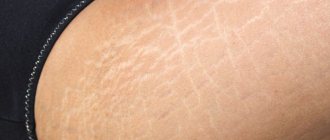Regular exercise leads to rapid exhaustion of an unprepared body. Muscle fatigue can even cause pain syndromes with repeated stress on the body. Regardless of what training regimen and sport you choose, the body needs regular rest to restore soft tissues. The answer to the question of how long it takes for the muscles of the legs or arms to recover is ambiguous, since everything depends on the body itself and the level of endurance.
Recovery
The post-workout period is when muscle mass begins to grow. In addition, pain occurs from those muscle groups that have already developed, but are beginning to return to tone.
After training, muscles recover within a few days. Therefore, beginning athletes are advised not to drive themselves into a deep hole by constantly increasing the load, but to do it gradually. It is a misconception that the result depends on the intensity and speed of training. At this rate, you can greatly harm the body, without giving the necessary time for the regeneration of soft tissues; as a result, the body simply will not have the physical strength to perform certain exercises.
To help the body, you can take protein shakes or amino acids, which significantly speeds up the body's recovery process. The very concept of muscle fatigue includes not only pain, but also possible stretch marks and mental fatigue.
Restoration of the body after physical activity is.
Recovery after physical activity is one of the most important processes for athletes. Energy, hormones and muscles are the three components of the body that bear the brunt of stress during physical activity. And they all recover differently. Energy reserves are replenished first, hormones need more time, and muscles need even more time. The central nervous system (CNS) takes the longest to recover from all components.
If an athlete does not take into account all the rules of recovery, hormones will take much longer to recover.
For example, if you go to the sauna and drink a little alcohol after an intense workout at the gym, this will prevent your body from adjusting its hormonal balance.
Such nuances may go unnoticed, but if repeated frequently, they will lead to big problems.
Hormones and their recovery after exercise
Hormonal levels are restored in a unique way after athletic training. The endocrine system, which has received stress from physical activity, produces “destructive” hormones, the main one of which is cortisol.
Cortisol promotes the breakdown of muscle fibers after training. But at the same time, an anabolic hormone is produced - testosterone, thanks to which this happens.
This imbalance - increased testosterone and cortisol production - lasts approximately 24 to 30 hours after exercise. This is the case if the conditions for proper rest after training in the gym are met - the required number of days off, enough sleep and adequate nutrition.
Otherwise, not only will the restoration of the endocrine system (hormones) be delayed, but the results achieved will also decrease.
Energy recovery after physical activity
It can also prevent energy from being restored. In general, two to three days are enough for this (with light training - much less). But the process can be significantly extended, and for this purpose such harmless factors as lack of sleep and malnutrition are sufficient.
Hobbies such as excessive sexual activity and indulgence in sweets can also interfere with the body's energy recovery.
The central nervous system can be overtired by the same physical activity. When an athlete works with extreme weights and high intensity for a long time, the following suffers:
and nerves, and hormones, and muscles.
First of all, the nerves, since the central nervous system cannot withstand constant stress. That is why, with excessively long maximum heavy loads in the gym, the immune system and hormones suffer, and therefore the results do not increase either with an increase in strength or with.
Recovery of the body after physical activity is the main factor in the growth of results and the health of athletes.
Without fully recovering, the athlete puts the immune system, gastrointestinal tract, and cardiovascular system at risk. Even phenomenal achievements in strength and mass are not worth such sacrifices.
Muscle tissue restoration
While hormones and energy have returned, recovery is not yet complete. Each muscle group needs a certain recovery period. For legs and lower back you need an average of 5-6 days, for arms and shoulders - 3-4 days. But this is in the case of intensive training.
With lighter workouts, the rest period will be much shorter. For example, after light biceps, the muscles are restored within a day.
At the very beginning, the first 8 - 12 hours are recovery. At medium intensity, muscles are restored by 75 - 85% within 24 - 30 hours. The remaining 15 - 25% are restored in at least 24 hours. The process may be delayed, depending on the intensity.
Constant extreme loads can not only increase recovery time, but also harm the body.
Intensity and accumulation are two factors that explain why muscles hurt after exercise. The higher the intensity, the more lactic acid accumulates in the muscle fibers. The consequence of this is muscle pain.
Compensation and super compensation
These principles are inextricably linked. The training process itself, in addition to great benefits in the future, in the present brings serious stress to the body due to the active effect on the muscles and rupture of soft tissues.
Even simple exercises for beginners can be traumatic if you add a heavy load or perform sets without rest breaks. How long does it take for muscles to recover? This takes several days; without these breaks, the body quickly becomes exhausted.
Compensation is the body's healing of soft tissue tears. Thanks to this, the muscle is brought back to its normal state. If the body has enough vitamins and minerals, additional substances and excess energy is produced, then the process of supercompensation begins, the essence of which is to thicken the previously injured muscle for future protection.
This is how the process of active muscle building occurs. If the necessary substances are not in the body, how long will it take for the muscles to recover? Time will increase. Therefore, athletes who perform heavy strength loads are advised to consume protein foods and sports nutrition elements.
A new workout should be started only after the end of the supercompensation phase, when the desired muscle group is compacted. Trainers develop a training program in such a way that the exercises alternate, and the body quickly gets into the desired shape due to the active alternation of phases.
Recovery with massage
Sports massage is a procedure that greatly helps accelerate the recovery of muscle fibers. Massage has the following benefits:
- Massage, firstly, warms up the muscles again, and it is much easier to remove glucose breakdown products, in particular lactic acid, from them.
- During the massage, the muscles relax. This increases their ability to regenerate and heal microdamages formed during training.
- Massage improves blood flow and, accordingly, nutrition of body tissues. Muscle growth occurs due to the active division of muscle fiber cells. Muscle growth requires nutrients and oxygen. During the massage, the blood vessels dilate, while blood pressure remains at the same level. And it is much easier to deliver the necessary amino acids to relaxed muscles.
- Massage also has a beneficial effect on the nervous and hormonal systems. Tactile sensations help calm and reduce stress levels in the body. And, as a result, the body has the opportunity to direct more of its resources to muscle restoration and healing.
How to Give a Sports Massage After Strength Training
A sports massage, like a general wellness massage, should begin with light stroking of the skin, gradually increasing the pressure. To ensure smooth gliding, use massage oil or cream with a warming effect.
Promotes relaxation, improves blood circulation
When the muscles have relaxed enough and become soft to the touch, you can begin to knead them more intensively. Particular attention should be paid to the muscles that you trained.
During the massage, you need to note and take into account your sensations and adjust the massage depending on them. Pain may occur, especially if it is the first or second day after a hard workout. However, the pain should be tolerable, but if it is too strong, you need to ease the pressure.
Massaging your body is best left to professionals, but with some practice you can massage yourself yourself if we are talking about your legs or arms.
Recovery time
It is impossible to determine the exact time the body goes through each phase. The reason is that each body is unique. But you can feel it yourself. If after performing the exercises you feel severe pain in the area where the load was performed, then this means a high-quality workout.
After a few days, the pain will subside, and you can perform the same exercise again to work the desired muscle group. At first, the discomfort is aching in nature and intensifies on the second day. This is good because it indicates the body’s ability to heal damaged tissue with a reserve for the future. Within a day, when the pain subsides, you can begin physical activity.
How long does it take for muscles to recover? It’s different for everyone, and it’s impossible to shorten this gap. For the body, such a rush will be a new stress, which can lead to a slowdown in the regeneration process.
Recovery stages
The body recovers gradually, in four phases:
- Fast recovery. Lasts approximately 30 minutes after the end of the workout. At this time, severe hunger usually occurs, as the body strives to replenish its supply of nutrients as quickly as possible.
- Slow recovery. At this stage, the regeneration of tissues and cells begins, the water-electrolyte balance returns to normal and the substances that came with food are actively absorbed. They will become the building material for new muscle tissue. Enzyme, protein and amino acid synthesis are also launched.
- Supercompensation phase. It occurs approximately on the third day after heavy exercise and ends on the fifth day. During this period, an increase in physical indicators is observed, that is, the body is preparing for new loads. The next session must be carried out before the supercompensation phase ends.
- Delayed recovery. Occurs after supercompensation if the athlete stops visiting a fitness club or gym. During the process of delayed recovery, the body returns to the same shape it was in before starting training, which is why it is so important not to skip training.
Feeling overtrained
To avoid the accumulation of fatigue, you need to give your muscles time to rest. When exercise takes more energy than the body can create, muscle fatigue occurs along with overtraining.
The peculiarity of the manifestation is that it becomes mentally difficult for a person to perform exercises or think about sports. How long does it take for muscles to recover? If you don’t give it the right time, emotional fatigue will begin to manifest itself very quickly.
After emotional sensations, the physiological process of slowing down regeneration begins. You may experience loss of appetite, muscle tightness and joint stiffness, which will ultimately lead to stagnation in results.
Almost all athletes face a similar problem, because everyone wants to see results as quickly as possible, without realizing the possible harm to the body. How long does it take for muscles to recover after training? You need to start new loads only after the required time has passed. If you do this earlier, there will be no normal effect.
The effect of nutrition and drink on recovery
What we eat becomes building material for the cells of our body. And, accordingly, if you want rapid muscle growth and progress during training, then you must monitor your nutrition.
It is important that the body receives the elements necessary for building muscles with food.
Equally important, and sometimes even more important, for the restoration of muscle tissue is how much we drink.
How water affects muscle growth
Water is a unique conductor and solvent of various chemical compounds in our body. With its help, all metabolic processes in the body are regulated, including the removal of elements unnecessary for the body and the supply of necessary building materials and nutrition to the cells.
The conductivity of our neurons also depends on the amount of water in the body. With a lack of moisture it worsens. Accordingly, we feel tired, less focused, and it becomes more difficult to perform simple exercises.
During exercise, our body heats up. We generate a lot of heat. And in order to compensate for the increase in body temperature, we sweat. A lot of water comes out with sweat. To feel good, it is important to consume no less water than we lose during training.
How much and when to drink
When building your own drinking regime, you can rely on the following principles:
- A person needs about 40 ml of fluid per kilogram of body weight per day.
- You need to drink about 0.5 liters of water a couple of hours before training. But without fanaticism, be guided by your feelings. If you have absolutely no desire to finish the recommended amount, do not drink. Excessive fluid intake can put additional strain on the heart.
- You also need to drink during training. You can take a couple of sips of liquid every 15–20 minutes.
- You can drink a glass of water 10 minutes before training.
- It is very important for recovery to drink about a liter of water within 4 hours after training.
Proper nutrition for an athlete and how muscles are restored
To restore muscles, it is important to eat enough protein and carbohydrates. Protein is the building material for muscle cells, and carbohydrates serve as a source of energy and are also stored in the muscles and liver in the form of glycogen.
During exercise, glycogen is broken down to provide us with energy. Therefore, it is important to restore its reserves. And protein is necessary for the regeneration and growth of muscle tissue after training.
To ensure that your muscles have enough amino acids for recovery, you can use special nutritional supplements with BCAA amino acids, as well as proteins. But you shouldn’t overuse sports nutrition either; moderation is important in everything. It is advisable to discuss this measure with your personal trainer, because there are no universal recommendations.
To restore muscle fibers, it is important to eat both proteins and carbohydrates.
You should also organize your diet in such a way as to receive the substances necessary for muscle growth and recovery. Eat foods rich in proteins (eggs, dietary meat, legumes, nuts) and complex carbohydrates (cereals, honey, vegetables). Also, do not neglect the natural fats found in fish and directly pressed vegetable oils. It will be useful to include seafood in your diet - they will provide you not only with proteins, but also with other microelements and vitamins necessary to stay in shape.
Vitamins and their role in the restoration of muscle fibers
If you want to be in good shape, then do not forget about vitamin complexes. Vitamins such as:
- Vitamin A, which regulates protein synthesis in the body. The amount of vitamin A affects the speed of tissue regeneration processes, and this is directly related to muscle recovery.
- B vitamins affect not only the condition of hair, skin and the nervous system, but also improve intracellular metabolism and neuron conductivity. This all contributes to better muscle recovery after training and an overall increase in performance. Many trainers recommend that their clients consume B vitamins along with amino acids for better absorption.
- Vitamin E eases the post-workout condition, as it helps eliminate excess substances accumulated during training from the body. Also, vitamin E, like vitamin A, has a positive effect on the ability of tissues to regenerate.
- Vitamin C is a very powerful antioxidant that neutralizes the effects of many factors on our body and significantly reduces the severity of muscle pain. But that’s not all: vitamin C, moreover, is involved in the synthesis of testosterone, normalization of hormonal balance, and also stimulates the formation of collagen, an important protein for building our muscles.
- Vitamin D is also important for muscle growth as it helps increase testosterone in the body. Plus, this vitamin helps absorb calcium and magnesium from food, which, in turn, has a positive effect on overall endurance, performance and ability to recover.
How much and when should you eat?
In order for muscles to grow properly, it is important not only what we eat, but also when we eat and in what quantity.
Muscles recover effectively while we sleep. Therefore, shortly before going to bed, you can eat some easily digestible protein. It could be a protein shake or just cottage cheese, low-fat cheese, squid, etc.
Breakfast should also be rich in protein. Add eggs, chicken breast. But be sure to mix up your proteins with carbohydrates, as you may need a lot of energy throughout the day.
Before strength training, you can also eat some protein foods or drink a shake. After exercise, you are allowed to eat about an hour later, and you should eat a lot of protein, as well as carbohydrates, to replenish lost energy reserves.
Correct regeneration
The process is multi-stage and complex. This includes not only the ability to limit strenuous physical activity on the days off between workouts, but also other factors.
It often depends on the body how much muscle needs to recover. The main elements that affect the speed of the regeneration process include:
- Quality and abundance of food.
- Sleep quality.
- Everyday lifestyle.
- Drinking the right amount of fluid.
- No bad habits.
If the body as a whole feels the embodiment of these points and their effect on the muscles, then the regeneration process will begin to accelerate. In the first months of training, it is better for novice athletes to avoid using diets to dry the body. This can burn newly developed muscle instead of excess fat.
Proper nutrition to maintain muscles as you age
You can keep your muscles toned even in old age thanks to proper nutrition. Various studies have shown that preventing muscle loss requires not only regular exercise, but also a nutritious diet. Elderly people in particular should consume plenty of protein. This substance helps maintain muscles at the proper level even in old age. Protein is considered to be the element that protects our body from loss of muscle strength.
In order to provide the necessary protection against muscle atrophy and loss of functionality, an elderly person should receive at least 1.2 grams of protein per 1 kg of body weight through food. This norm applies to people who do not have renal or metabolic disorders.
Another element that ensures the preservation of muscle mass even in old age is vitamin D. Research shows that people over the age of 60 have very little of this vitamin in their bodies. To solve the problem of vitamin D deficiency, it is recommended to regularly use vitamin supplements. The relevance of such supplements is also due to the fact that vitamin D ensures that a person’s mental abilities are maintained at the proper level.
Proper nutrition also involves completely avoiding the use of inflammatory agents and destructive acids. This means that older adults should avoid eating grains and red meat. The necessary protein can be obtained, for example, from dietary meat. It is also recommended to increase the amount of vegetables in your diet. This will ensure improved metabolism.
Following these recommendations will allow an elderly person to maintain muscle tone and minimize the loss of muscle mass despite age.
The importance of sleep
Regardless of how long it takes for muscles to recover, the body needs at least eight hours of restful and sound sleep. You need to go to bed early, no later than 12 o'clock at night. It is advisable that sleep is not interrupted. Many people, due to their temperament type, cannot fall asleep quickly, so you can drink a glass of milk or listen to soothing music at night.
The comfort factor here depends on the temperature in the room; it should not be so high that the person sweats. It is better to sleep on hard surfaces to avoid pain later. To support your head, use a bolster or a small pillow, but not high.
In order to fall asleep faster, you can use breathing exercises, taking deep, even, slow breaths and the same exhalations. You need to configure your body in such a way that you can fall asleep and wake up on your own, regardless of the alarm clock. This will be the first step towards rapid regeneration of the body.
Regardless of how long your muscles need to recover, you need to monitor your general well-being and, if possible, do stretching at home.
Signs of full recovery
• Starting the next workout, there is an increase in athletic results, no matter if you added 3 kg in the bench press, squats or deadlift. or 0.5 kg. The main thing is moving forward, not marking time.
• The absence of pain in the chest area and good health is a clear signal that the body has recovered.
• Good sound sleep, if you sleep poorly, have weakness in the body or drowsiness during the day, it means the body is still at the recovery stage and the process is not completed.
• Another good way, 2 hours after training, take a sitting position, measure your pulse, if it is 75 beats per minute or lower, it means you have not overtrained, if more, then there are 2 reasons: the body has overtrained or problems with the cardiovascular system.
I think I have more or less explained to you what recovery is and how to improve it, train correctly, I wish the guys big, sculpted arms, and the girls round, appetizing asses.
There are wishes and advice, comments are always open for you, good luck









